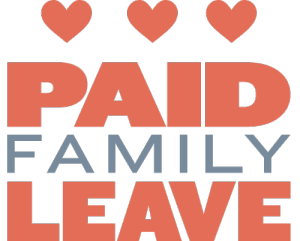The ball is in Mayor Bowser’s court on paid family and medical leave, now that the Council Chairman sent the approved Universal Paid Leave Act (UPLA) to her last week. She should sign the bill and start planning for its implementation, because paid family and medical leave will help the vast majority of DC residents, improve public health, address economic disparities—and all without making the growing DC economy miss a beat.
 This program will give 8 weeks of paid leave for new parents to be with their children, 6 weeks to workers who need to care for an ill relative, and 2 weeks for workers to address their own health needs. The benefits are many:
This program will give 8 weeks of paid leave for new parents to be with their children, 6 weeks to workers who need to care for an ill relative, and 2 weeks for workers to address their own health needs. The benefits are many:
First, paid family leave will benefit two-thirds of working District residents—that’s the share of DC residents who work in the city for a private-sector business.[1]
UPLA will be especially beneficial to low-income communities of color, including residents east of the Anacostia River. Because the program will replace 90 percent of wages for the lowest-paid workers, working DC residents in Ward 7 and Ward 8 will, on average, get more of their wages replaced under paid family and medical leave than workers from other parts of the city.
Second, UPLA will be helpful to small businesses that otherwise are unable to afford to provide these benefits. (DCFPI, for example, will be able to offer this level of paid leave for the first time thanks to this program.)
Finally, UPLA will have positive public health and economic impacts, according to a thorough analysis by the DC Council Budget Office:
- Women’s labor force participation in the District will increase,
- The District’s infant mortality rate will decrease, and
- Paid family leave is “unlikely to alter the current upward trajectory of the District’s economy.”[2]
Once UPLA officially becomes law—after the Mayor’s review and the typical 30 day congressional review period—the program’s start-up costs still must be funded. Some $20 million in new funding is needed for important start-up costs, such as IT infrastructure. This could be funded by changing DC’s fiscal policy to allow spending some of the recent surplus. Once the start-up costs are provided, the program will be self-sustaining through an employer payroll tax.
Because UPLA stands to help DC residents, small businesses, and the broader economy, we encourage local and federal policymakers to ensure that it becomes law, so that we can get to work on beginning to implement this very important program.
[1] The bill does not cover Federal workers, DC government workers, or DC residents who work outside of the District. [2] The Council Budget Office concludes that under paid family leave, DC’s economy will be at least 99.9 percent as large as it would be without adopting this program.